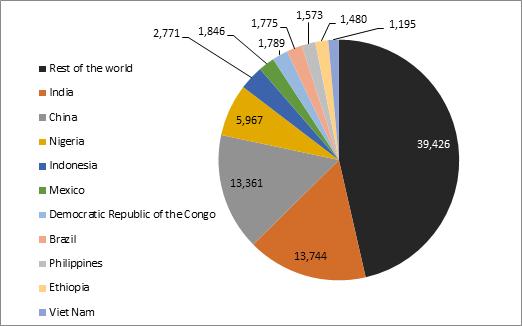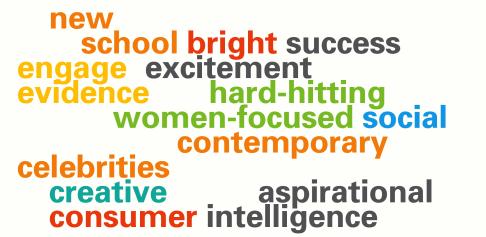
The Sistine Chapel seems an unlikely place to launch a new breastfeeding revolution, but future historians may tell us that's where it began. When Pope Francis recently invited mothers to feed their hungry infants during a special baptism, he was also sending a global message in support of public breastfeeding. "If they are hungry, mothers, feed them" said a smiling Francis, "because they are the most important people here." Breastfeeding advocates were thrilled, calling on other personalities to follow his lead.
It doesn't make headlines, but every year 800,000 children under five die because of poor breastfeeding practices. Scientific evidence about breastfeeding's extraordinary benefits continues to grow. Initiating breastfeeding within the first hour after birth can reduce newborn mortality by up to 20 percent.
1 - 6 - 24
Those are the crucial numbers: initiate breastfeeding during the first hour after birth; breastfeed exclusively for six months; continue till the child's second birthday. Breast milk is indeed a 'superfood', which also builds the bond between mother and child.
What will motivate media, politicians and celebrities to provide leadership on breastfeeding promotion as Pope Francis has recently done?
Yet the data is stark: the global rate of exclusively breastfed children under six months has remained below 40 percent since the early 1990's. Lack of progress in ten highly populated countries, with over half the numbers of non-exclusive breastfed children, has significantly impacted the global picture:

Data sources: State of the World's Children 2014. Numbers are in thousands.
Why has investment in breastfeeding programs remained so low, despite its powerful contribution to child survival, growth and development? What can be done to rally political will for this priority?
In one word: leadership.
That's the consensus feedback from a recent study conducted by UNICEF, Breastfeeding on the Worldwide Agenda, which analyzes responses from 44 health and nutrition actors across the globe. Interviewees were passionate about their commitment to advance breastfeeding, and frank about their challenges:
"Relative to its importance, it's just undervalued."
"There are virtually no resources for breastfeeding support, despite compelling evidence of its impact."
"Leadership trumps everything for me" said one interviewee,distilling a widely shared view. Respondents called on UNICEF and WHO to guide a renewed advocacy drive for breastfeeding, integrating it within existing campaigns. They also prioritized these actions:
- Define a common agenda. Advocates must develop a unified voice all actors can rally around. This includes a space for dialogue on polarizing issues such as partnering with private companies to reduce malnutrition.
- Recast the advocacy case for a 21st century world. Women are increasingly raising children in urban areas, working outside the home, influenced by advertising and accessing mobile phones. Advocates must make an aspirational case for breastfeeding that appeals to them and their families.
- Build support from policy makers, health care providers, businesses and communities. Countries that promote breastfeeding have higher coverage levels. Women need support to begin breastfeeding their infant at life's beginning and to continue as their babies grow.
- Take urgent action to protect breastfeeding as breast milk substitutes (BMS) companies gain market share in emerging economies. Nothing worried respondents more than the threat this poses to breastfeeding. Civil society groups report ongoing violations of the International Code of Marketing of Breast-milk Substitutes.
There was much good news in UNICEF's study as well. We may now be at a crucial turning point for breastfeeding advocacy, many said. They pointed to the surge in interest in nutrition that has never been higher worldwide. Investing in the 1,000 days window of opportunity is a message now resonating with political leaders and donors, who pledged $4.15 billion to combat malnutrition till 2020.
UNICEF's study provides a roadmap for action. Can breastfeeding advocates and their allies capitalize on this historic opportunity?

These are some of the words UNICEF respondents used to describe the focus and tone for a breastfeeding communication campaign
What will motivate media, politicians and celebrities to provide leadership as Pope Francis has just done? How to convince families enamored by formula advertising that breastfeeding truly is the best choice for the modern woman and her child?
Watch this space. Impatient Optimists will continue to shine a light on this essential topic. We invite you to comment and share on Twitter, with a message such as this one:
This post first appeared on the Bill & Melinda Gates Foundation's "Impatient Optimists" blog.